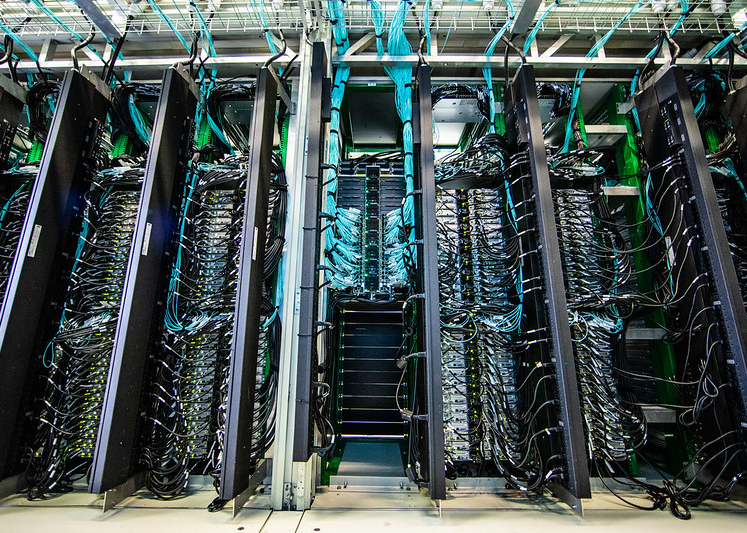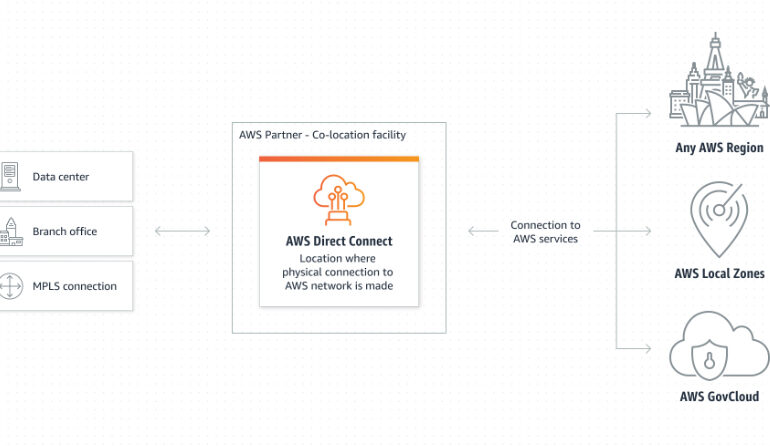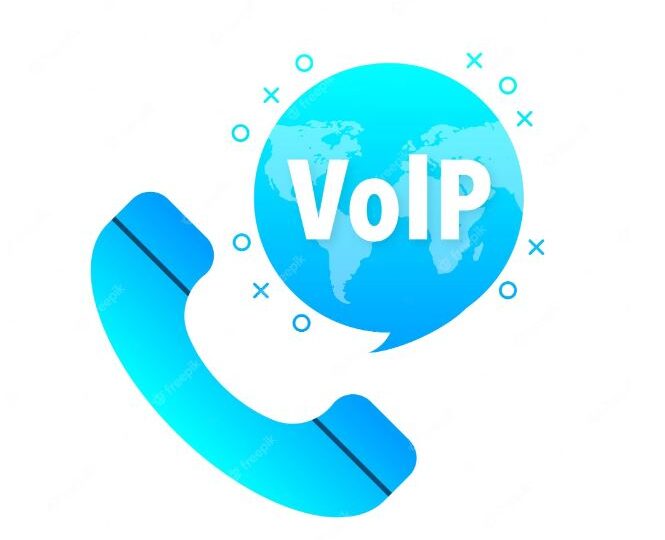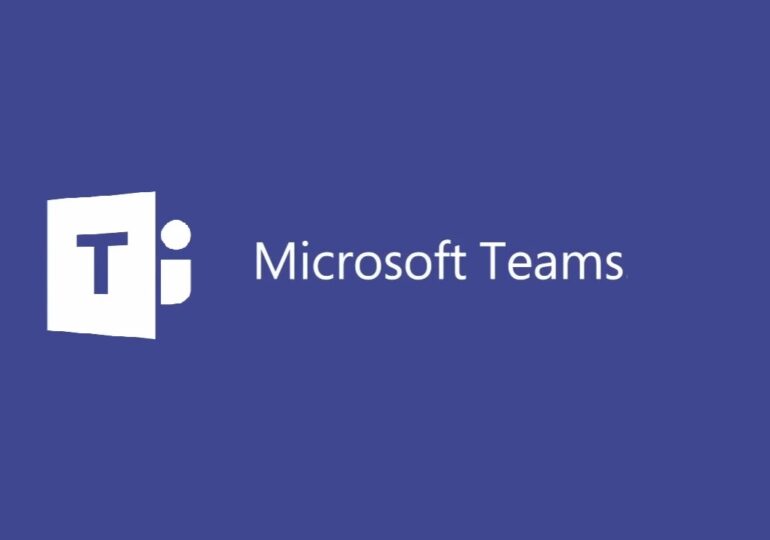Why businesses use dedicated network connectivity to connect to public Cloud Service Providers (CSPs)

Introduction
In a world driven by data and connectivity, businesses are increasingly turning to dedicated network connectivity to connect to public Cloud Service Providers (CSPs). This strategic move empowers organizations with a reliable and high-performance solution, enabling them to seamlessly connect to their chosen CSPs.
By opting for dedicated network connectivity, businesses can ensure secure and efficient data transfer between their internal systems and the public cloud. With direct access to CSPs, they can bypass the unpredictability and potential bottlenecks of the public internet, guaranteeing faster and more stable connections.
Moreover, dedicated network connectivity offers enhanced security measures, safeguarding sensitive information and mitigating the risks of data breaches. This is particularly crucial for industries such as finance, healthcare, and e-commerce that deal with highly confidential data.
Overall, the use of dedicated network connectivity enables businesses to optimize their cloud performance, boost productivity, and minimize downtime. It is a strategic investment that not only enhances data transfer speed and reliability but also contributes to the overall success and competitiveness of the organization.
In this article we will discuss the key points:
- The rise of public Cloud Service Providers (CSPs)
- The limitations of traditional internet connections for cloud connectivity
- Benefits of dedicated network connectivity for businesses
- Security and reliability of dedicated network connections
- Cost considerations for dedicated network connectivity
- Types of dedicated network connections – MPLS, Ethernet, and Direct Connect
- Choosing the right dedicated network connectivity provider
- Case studies of businesses using dedicated network connectivity for cloud services
The rise of public Cloud Service Providers (CSPs)
In recent years, the popularity of public Cloud Service Providers (CSPs) has skyrocketed. Businesses of all sizes and industries are leveraging the power of the cloud to store, process, and analyze vast amounts of data. CSPs offer scalable infrastructure, advanced analytics capabilities, and a wide range of services that enable businesses to innovate and stay ahead in today’s digital landscape.
However, connecting to these CSPs through traditional internet connections can pose significant challenges. The public internet, while widely accessible, is inherently unpredictable and can suffer from congestion and latency issues. This can result in slower data transfer speeds, decreased performance, and potential bottlenecks that hinder business operations and productivity.
The limitations of traditional internet connections for cloud connectivity
Traditional internet connections, such as broadband or DSL, are designed for general internet usage and are not optimized for the demands of cloud connectivity. These connections are typically shared among multiple users and suffer from limited bandwidth and varying speeds.
When businesses rely on traditional Internet connections to connect to CSPs, they are at the mercy of the public Internet infrastructure. Network congestion, routing inefficiencies, and external factors can all impact the reliability and performance of these connections. This uncertainty can lead to slower data transfers, increased latency, and potential disruptions to critical business processes.
Furthermore, traditional internet connections lack the security measures necessary to protect sensitive data during transit. The public internet is prone to security threats, such as hackers intercepting data or unauthorized access to confidential information. This poses significant risks for businesses, especially those operating in highly regulated industries or handling sensitive customer information.
Benefits of dedicated network connectivity for businesses
To overcome the limitations of traditional internet connections, businesses are increasingly turning to dedicated network connectivity for their cloud connectivity needs. Dedicated network connections provide a direct link between an organization’s internal network and the CSP’s infrastructure.
One of the primary benefits of dedicated network connectivity is improved reliability and performance. These connections offer dedicated bandwidth, ensuring businesses have a consistent and predictable connection to their chosen CSPs. By eliminating the uncertainties of the public internet, organizations can enjoy faster data transfers, reduced latency, and increased productivity.
Moreover, dedicated network connections provide enhanced security measures. These connections are isolated from the public internet, reducing the risk of data breaches and unauthorized access. Encryption and other security protocols can be implemented to further protect sensitive data during transit. This level of security is crucial for businesses operating in regulated industries or handling confidential customer information.
Additionally, dedicated network connectivity allows for greater scalability and flexibility. As businesses grow and their cloud requirements evolve, dedicated connections can easily accommodate increasing bandwidth needs. This scalability ensures organizations can adapt to changing demands without sacrificing performance or compromising security.
Security and reliability of dedicated network connections
Security and reliability are two critical factors that make dedicated network connections an attractive option for businesses connecting to CSPs. Unlike traditional internet connections, which are shared among multiple users and subject to external factors, dedicated connections offer a more secure and reliable solution.
Dedicated network connections are typically provided by trusted network service providers. These providers offer robust security measures, including encryption, virtual private networks (VPNs), and dedicated firewalls. These security measures ensure that data transferred between the organization and the CSP remains confidential and protected from unauthorized access.
Furthermore, dedicated connections are not susceptible to the same network congestion and latency issues as the public internet. By bypassing the public internet infrastructure, businesses can enjoy faster and more stable connections, resulting in improved performance and reduced downtime.
Cost considerations for dedicated network connectivity
While dedicated network connectivity offers numerous benefits, businesses need to consider the associated costs. Dedicated connections typically require infrastructure investments, including hardware and initial setup costs. Additionally, there may be ongoing charges for bandwidth usage and maintenance.
However, it is crucial to evaluate these costs in the context of the potential benefits and ROI that dedicated network connectivity can provide. By optimizing cloud performance, minimizing downtime, and enhancing security, businesses can achieve significant long-term cost savings and operational efficiencies.
Organizations should conduct a thorough cost-benefit analysis and consider their specific requirements and budget constraints when deciding to invest in dedicated network connectivity. Working with a trusted network service provider can help businesses navigate these considerations and find a solution that aligns with their needs and budget.
Types of dedicated network connections – MPLS, Ethernet, and Direct Connect
There are several types of dedicated network connections available for businesses connecting to CSPs. The choice of connection type depends on factors such as bandwidth requirements, geographic location, and specific CSPs being accessed. The three most common types of dedicated network connections are MPLS, Ethernet, and Direct Connect.
- MPLS (Multiprotocol Label Switching): MPLS is a widely used technology for creating private networks. It allows businesses to establish secure and reliable connections between their locations and the CSP’s data centres. MPLS provides Quality of Service (QoS) guarantees, ensuring prioritized traffic and efficient data transfer.
- Ethernet: Ethernet connections offer high-speed, scalable, and flexible connectivity options. They are suitable for businesses with significant bandwidth requirements or those needing to connect multiple locations to the cloud. Ethernet connections can be easily upgraded to meet growing demands, making them a future-proof choice.
- Direct Connect: Direct Connect is a dedicated physical connection between an organization’s on-premises infrastructure and the CSP’s data centres. It provides a private, low-latency connection that bypasses the public internet entirely. Direct Connect offers high bandwidth options, making it ideal for data-intensive workloads and applications.
Choosing the right dedicated network connectivity provider
Selecting the right dedicated network connectivity provider is crucial for businesses looking to connect to CSPs. The provider should have a solid track record, extensive experience in cloud connectivity, and a robust network infrastructure. Here are some key factors to consider when choosing a dedicated network connectivity provider:
- Reliability: Look for a provider with a proven track record of reliability and uptime. Downtime can result in significant disruptions to business operations, so it is essential to choose a provider that can guarantee high availability.
- Security: Ensure that the provider offers robust security measures to protect data during transit. Encryption, VPNs, and dedicated firewalls are essential components of a secure network connection.
- Scalability: Consider your current and future bandwidth requirements when selecting a provider. The provider should offer scalable solutions that can accommodate your organization’s growth and changing cloud connectivity needs.
- Customer Support: Look for a provider that offers responsive and knowledgeable customer support. In the event of any issues or concerns, having a reliable support team can make a significant difference in resolving problems quickly and minimizing downtime.
Case studies of businesses using dedicated network connectivity for cloud services
To illustrate the benefits and real-world impact of dedicated network connectivity, let’s explore a few case studies of businesses that have embraced this technology.
- Company X: Company X, a global e-commerce retailer, experienced significant performance issues and frequent downtime when using traditional internet connections to connect to their CSP. By switching to a dedicated network connection, they saw a 50% improvement in data transfer speeds and a 75% reduction in downtime. This resulted in improved customer satisfaction, increased sales, and enhanced overall productivity.
- Company Y: Company Y, a financial services firm, recognized the importance of data security and compliance. They opted for a dedicated network connection to connect to their CSP, ensuring that sensitive customer information remained protected during transit. This move enhanced their reputation for trustworthiness and compliance, attracting new customers and strengthening existing relationships.
- Company Z: Company Z, a healthcare provider, needed a reliable and secure connection to their CSP to store and access patient data. By implementing a dedicated network connection, they improved data transfer speeds, reduced latency, and enhanced security. This enabled them to provide faster and more efficient healthcare services, ultimately improving patient outcomes.
Conclusion and final thoughts
The use of dedicated network connectivity to connect to public Cloud Service Providers (CSPs) has become a strategic imperative for businesses seeking reliable, secure, and high-performance cloud connectivity. By bypassing the limitations of traditional internet connections, organizations can optimize their cloud performance, boost productivity, and minimize downtime.
Dedicated network connections offer enhanced security measures, safeguarding sensitive data and mitigating the risks of data breaches. They also provide faster and more stable connections, ensuring efficient data transfer between the organization’s internal systems and the public cloud.
When considering dedicated network connectivity, businesses should carefully evaluate the associated costs and conduct a cost-benefit analysis. Working with a trusted network service provider can help navigate this process and find a solution that aligns with the organization’s needs and budget.
Ultimately, by embracing dedicated network connectivity, businesses can unlock the full potential of the cloud, gain a competitive edge, and drive innovation in today’s data-driven world. It is a strategic investment that enables organizations to scale, adapt, and thrive in the digital age.







































